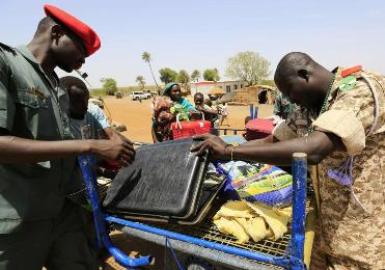Sudan, South Sudan border commission meets in Khartoum
November 22, 2017 (KHARTOUM) – The Joint Border Commission (JBC) between Sudan and South Sudan has kicked off its 6th meeting on Wednesday in the Sudanese capital Khartoum.

He underscored the determination to achieve aspirations of the two brotherly people’s instability and sustainable peace.
The Co-chair of the JBC from the Sudanese side Abdalla al-Sadiq said the meeting aims to develop an integrated report describing the joint border in preparation for its demarcation on the ground by specialized committees.
For his part, JBC Co-chair from South Sudan Darius Garang said the meeting comes in continuation of previous meetings that recommend identification of the agreed and disputed areas between the two countries.
He stressed their determination to overcome the obstacles that could face the JBC through cooperation and consultation with the Sudanese side.
Claimed and disputed areas of the Sudan and South Sudan border include Abyei, 14-Mile area, Joudat Al-Fakhar, Jebel al-Migainais, Kaka, and Kafia Kingi enclave (Hofrat al-Nahas).
Since South Sudan’s independence, the agreed border between the two countries is not yet demarcated (marked on the ground). Also, talks between the two sides continue to delimit the remaining 20% disputed boundary.
In September 2012, both Sudan and South Sudan signed a series of cooperation agreements, which covered oil, citizenship rights, security issues, banking, border trade among others.
In March 2013, the two countries signed an implementation matrix for these cooperation agreements. However, the execution of the agreements didn’t go according to the plan.
South Sudan seceded from Sudan on July 9th, 2011 following a referendum on whether the semi-autonomous region should remain a part of the country or become independent. 99% of the southern voters chose independence.
Relations between the two nations soured after South Sudan’s independence following a series of disputes over a number of issues.
(ST)
